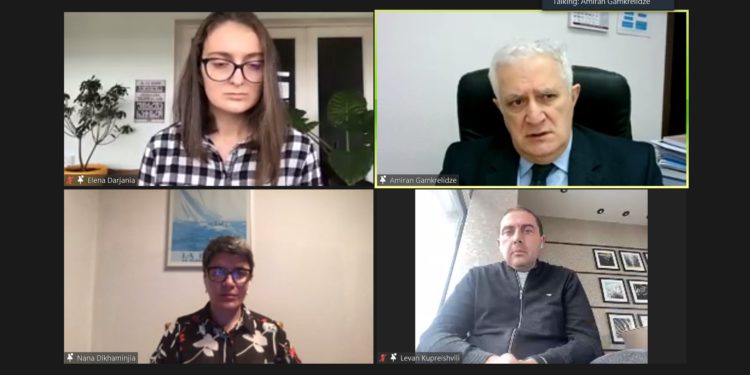Challenging conventional wisdom to solve protracted development challenges was in focus today, as the United Nations Development Programme (UNDP) launched its Accelerator Lab in Georgia. The new facility joins a global network of 92 UNDP Accelerator Labs covering 116 different countries, seeking to apply new insights and technologies to solve protracted development challenges.
“UNDP is taking a fresh look at how we do business,” said UN Assistant Secretary-General and UNDP Regional Director Mirjana Spoljaric Egger. “The Accelerator Labs give us the agility and aptitude to apply new approaches to help countries to unlock development challenges that often seem to defy solution.”
Each Accelerator Lab combines three functions: scanning the horizon for grassroots solutions that may have gone unrecognized by experts; using unconventional sources to generate real-time data to detect emerging trends; and conducting small-scale experiments to test the potential of different approaches.
Georgia was selected this year to join this fast-growing network of innovation and experimentation.
“The choice of Georgia as the home for our newest Accelerator Lab was for me an obvious one,” said Spoljaric Egger, citing the country’s impressive track record of innovation in public service delivery and its achievements in applying digital technologies to reach vulnerable groups in the pandemic response.
“The Accelerator Lab enriches our work by giving us a team of ‘mad scientists’ to turn to when we lack ready answers,” said Louisa Vinton, UNDP Head in Georgia. “They can tap into the collective intelligence of an impressive global brain-trust and come back to us with real-world solutions tested in other contexts. We see opportunities both to enhance ongoing programming and to generate exciting new initiatives.”
The three-person Accelerator Lab team is currently completing a first 100-day cycle aimed at seeking practical answers to three queries chosen as a starting point: how to extend municipal services to hard-to-reach regions in pandemic conditions; how to change public attitudes towards recycling and waste separation; and how to translate climate data into narratives that can transform people’s behavior.
The Lab has also launched an exploration into how best to overcome vaccine hesitancy in Georgia, joining a broad coalition supporting the National Centre for Disease Control and Public Health (NCDC) in trying to ensure the swiftest possible uptake once COVID-19 vaccines start to arrive in the country.
The UNDP Accelerator Lab network is funded by the Governments of Germany and Qatar.
“Germany is pleased to have this opportunity to support Georgia in harnessing innovative solutions and to work with UNDP in incorporating fresh insights into development efforts,” said German Ambassador Hubert Knirsch. “Most of all, we want to help Georgia to recover from the pandemic and regain momentum towards the Sustainable Development Goals. Through smart use of data and other innovative methods, the Accelerator Lab can make important contributions to our shared efforts.“
The online launch of the Accelerator Lab in Georgia was attended by UNDP partners from Government, civil society, the private sector and academia. It featured a lively discussion on science and digitalization among DirectorGeneral of the National Centre for Disease Control and Public Health Amiran Gamkrelidze, Vice-Rector at Ilia State University Nana Dikhaminjia, and Senaki Mayor Levan Kupreishvili.
The early achievements of Accelerator Labselsewhere were shared by network pioneers from Ukraine, Azerbaijan and Argentina, while the Georgia team – Sesili Verdzadze, Elena Darjania and Zurab Nabakhteveli– presented their own ideas and plans. The AccLab team also shared the results of an interactive quiz aimed at validating the priorities they have selected for their first months with UNDP and invited interested participants to join in a more focused partner workshop to be held in two weeks.














